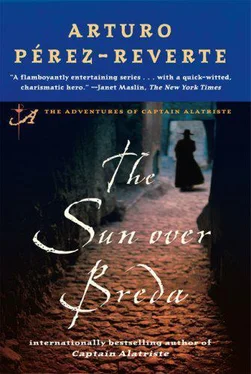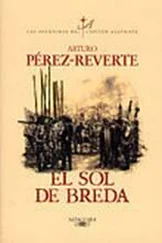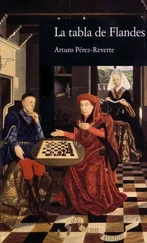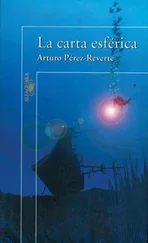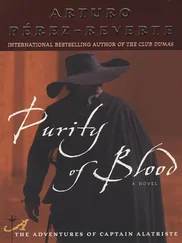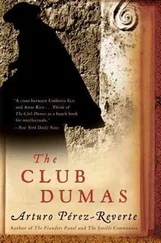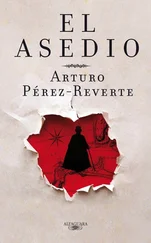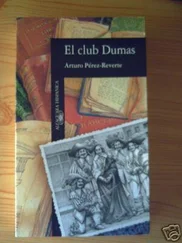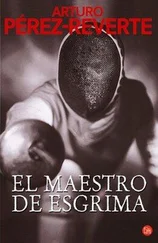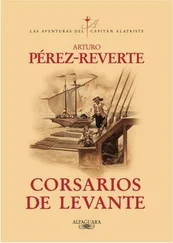Arturo Pérez-Reverte - The Sun Over Breda
Здесь есть возможность читать онлайн «Arturo Pérez-Reverte - The Sun Over Breda» весь текст электронной книги совершенно бесплатно (целиком полную версию без сокращений). В некоторых случаях можно слушать аудио, скачать через торрент в формате fb2 и присутствует краткое содержание. Жанр: Старинная литература, на английском языке. Описание произведения, (предисловие) а так же отзывы посетителей доступны на портале библиотеки ЛибКат.
- Название:The Sun Over Breda
- Автор:
- Жанр:
- Год:неизвестен
- ISBN:нет данных
- Рейтинг книги:5 / 5. Голосов: 1
-
Избранное:Добавить в избранное
- Отзывы:
-
Ваша оценка:
- 100
- 1
- 2
- 3
- 4
- 5
The Sun Over Breda: краткое содержание, описание и аннотация
Предлагаем к чтению аннотацию, описание, краткое содержание или предисловие (зависит от того, что написал сам автор книги «The Sun Over Breda»). Если вы не нашли необходимую информацию о книге — напишите в комментариях, мы постараемся отыскать её.
The Sun Over Breda — читать онлайн бесплатно полную книгу (весь текст) целиком
Ниже представлен текст книги, разбитый по страницам. Система сохранения места последней прочитанной страницы, позволяет с удобством читать онлайн бесплатно книгу «The Sun Over Breda», без необходимости каждый раз заново искать на чём Вы остановились. Поставьте закладку, и сможете в любой момент перейти на страницу, на которой закончили чтение.
Интервал:
Закладка:
I suppose you may have recognized who I am. My name is Íñigo Balboa, and at the time of this tale I was fourteen years old. And may no one take it as presumption when I tell you that he who is skillful with the dagger lives to be a veteran and that I, despite my youth, was a specialist in that art. After dangerous adventures played out in the Madrid of our king, Philip IV, in which I found myself forced to take up pistol and sword, and was once only a step away from the gallows, I had spent the last twelve months with my master, Captain Alatriste, in the Flanders army. This came about when the Tercio Viejo de Cartagena, after traveling by ship to Genoa, had come inland by way of Milan and the so-called Camino Español to join the heart of the war with the rebellious provinces. The era of glorious captains, glorious attacks, and glorious booty was now long past, and the conflict had become a kind of long and tedious chess game in which strongholds were besieged, changed hands, and were besieged again, bravery often counting for less than patience.
It was just such an episode that had brought me there that early morning, walking along in the fog toward the Dutch sentinels at the Oudkerk gate as if it were something I did every day—I and the young girl beside me, whose face was scarcely visible, the two of us surrounded by country folk, geese, oxen, and carts. We walked a little farther, even after one of the peasants, who seemed rather dark-skinned for this landscape and these people, where nearly everyone was blond, with fair skin and light eyes, passed by muttering something under his breath that sounded very much like an Ave Maria. He was hurrying as if he wanted to catch up with a group of four walking a little ahead of us; they, too, unusually thin and dark.
And then, at almost the same time, we all—the four in front of us, the latecomer, the girl in the scarf, and I—came together at the place where the sentinels were posted outside the drawbridge and the gate. One of the guards was a plump, pink-skinned corporal wrapped in a black cape; the other had a long blond mustache that I remember very well because he said something in Flemish, undoubtedly a lewd remark, to the young girl, and laughed aloud. And then suddenly he wasn’t laughing, because the thin peasant of the Ave Maria had pulled a dagger from his doublet and was slitting the corporal’s throat. Blood spurted out in a stream so strong that it stained my knapsacks just as I was opening them to distribute the well-oiled pistols hidden inside to the four other peasants, in whose hands daggers flashed like lightning. The plump corporal opened his mouth to raise the alarm, but that was all he could do, because before he was able to utter a single syllable, a quickly drawn dagger traced a line above the neck plate of his corselet, slicing his gullet from ear to ear. By the time he had fallen into the moat, I had dropped my knapsacks and, with my own dagger between my teeth, was scrambling like a squirrel up the strut of the drawbridge. Meanwhile the girl in the scarf, who had shed her scarf and was not even a girl but a youth who answered to the name of Jaime Correas, was climbing up the other side. Like me, he shoved a wooden wedge into the mechanism of the drawbridge and then cut its ropes and pulleys.
Oudkerk awoke as never before in its history, because the four with the pistols and he of the Ave Maria raced like demons along the bulwarks, stabbing and shooting anything that moved. At the same time, my companion and I, having put the bridge out of commission, were sliding down the chains when a hoarse roar erupted from the shore of the dike: the cries of a hundred and fifty men who had spent the night in the fog, in water up to their waists, and who now emerged shouting “Santiago! Santiago! Spain and Santiago!”—the traditional battle cry in praise of their country and their patron saint. Resolved to work off the paralyzing cold with blood and fire, they swarmed up the embankment with swords in hand, ran along the dike toward the drawbridge and the gate, occupied the bulwark, and then, to the terror of the Dutch who were scattering in all directions like crazed geese, entered the town, killing right and left.
Today the history books speak of the assault on Oudkerk as a massacre. They mention the “Spanish fury” at Antwerp, and maintain that the Tercio Viejo de Cartagena acted with singular cruelty that day. Well, no one said that to me, because I was there. It is true that those first moments were marked by pitiless carnage, but will Your Mercies tell me how else, with only a hundred and fifty men, one could take a fortified Dutch town with a garrison of seven hundred? Only the horror of an unexpected and merciless attack would so quickly break the spine of those heretics, so our men applied themselves to the task with the professional rigor of experienced soldiers. The orders of Colonel don Pedro de la Daga had been to start the raid with many deaths in order to terrify the defenders and force them to a swift surrender but not to begin the sacking of the town until victory was assured. So I will spare you further details and say only that the scene was a chaos of harquebus shot, yelling, and flashing swords, and that no Dutch male over fifteen or sixteen who encountered our men in the first moments of the assault—whether fighting, fleeing, or surrendering—lived to tell of it.
Our colonel was right: The enemy’s panic was our best ally, and we did not lose many men—ten or twelve, at most, counting both dead and wounded—which is, pardiez, few enough when compared to the two hundred heretics the town was to bury the next day, and bearing in mind how smoothly Oudkerk fell into our hands. We met the strongest resistance at the city hall, where some twenty Englishmen were able to regroup in some order. The English had been allied with the rebels ever since our lord and king had refused their Prince of Wales the hand of our Infanta María, so when the first Spaniards arrived in the town square with blood dripping from daggers, pikes, and swords, and the English welcomed them with musket volleys from the balcony of the city hall, our soldiers took it very personally. With gunpowder, tow, and tar, they set fire to the hall with the twenty Englishmen inside, then shot and knifed every one of them as they came out—those who did come out.
Then began the sacking. According to military custom, in cities that did not surrender according to the proper stipulations or that were taken by assault, the victors were entitled to enter and sack. Thus, fired with greed for booty, each soldier fought as if ten and swore for a hundred. And as Oudkerk had not surrendered—the heretic governor had been shot in the first moments and the burgomaster simultaneously hanged at the door of his house and, furthermore, as the town had been won, in a word, through pure Spanish bollocks—no one had to sign a formal order allowing us Spaniards to break into any houses we deemed promising—which was all of them—and make off with anything that took our fancy. This, as you may imagine, resulted in some painful scenes. The burghers of Flanders, like anywhere else, tended to be reluctant to be relieved of their belongings, and many had to be convinced by the tip of a sword. Soon the streets were filled with soldiers carrying a colorful variety of spoils through smoke, trampled draperies, smashed furniture, and bodies, many of which were barefoot or naked, and whose blood formed dark pools on the cobbles, blood the soldiers slipped in and the dogs lapped up. Your Mercies can imagine the picture.
There was no violation of women, at least no tolerated violation; nor was there drunkenness among the troops, for often, even in the most disciplined soldiers, the latter gives way to the former. Orders in regard to this matter were as clean-cut as the edge of a Toledo blade, for our general, don Ambrosio Spínola, did not want to antagonize the local populace still further; it was enough to be slashed and sacked without the added outrage of having their women molested. So on the eve of the attack, to make things perfectly clear—and because a lesson is always better than a lecture—two or three soldiers who had been convicted for crimes against the gentle sex were hanged. No unit and no company is perfect. Even in Christ’s, which was one he had recruited himself, there was one who betrayed him, another who denied him, and yet another who failed to believe him. The fact is that in Oudkerk, the preventative warning worked wonders, and except for an occasional isolated case, inevitable when dealing with soldiers drunk with victory and booty, the virtue of the Flemish women, whatever it may have been, remained intact. For the moment.
Читать дальшеИнтервал:
Закладка:
Похожие книги на «The Sun Over Breda»
Представляем Вашему вниманию похожие книги на «The Sun Over Breda» списком для выбора. Мы отобрали схожую по названию и смыслу литературу в надежде предоставить читателям больше вариантов отыскать новые, интересные, ещё непрочитанные произведения.
Обсуждение, отзывы о книге «The Sun Over Breda» и просто собственные мнения читателей. Оставьте ваши комментарии, напишите, что Вы думаете о произведении, его смысле или главных героях. Укажите что конкретно понравилось, а что нет, и почему Вы так считаете.
